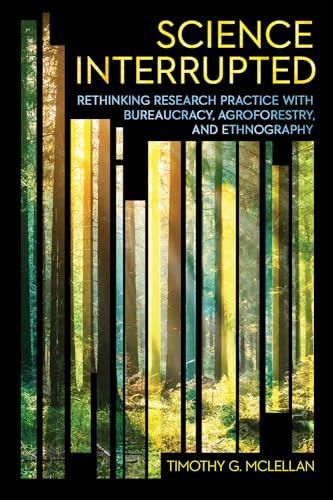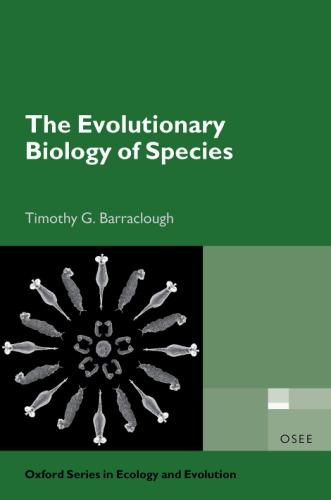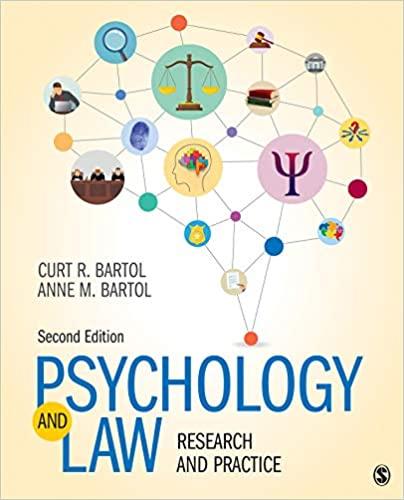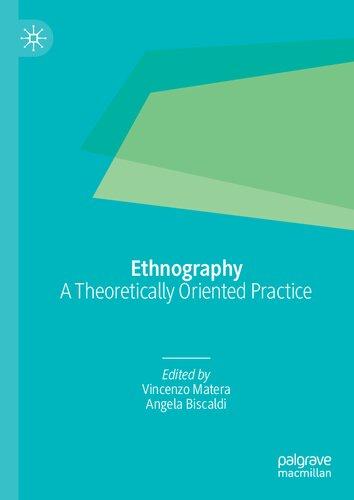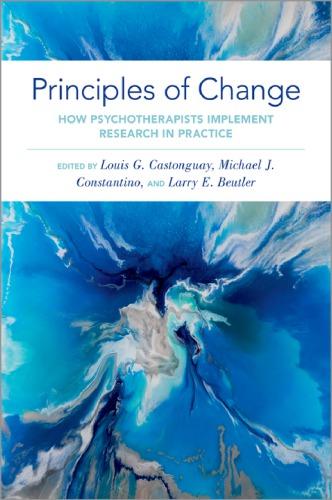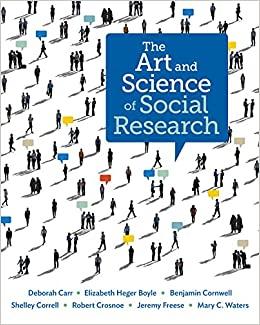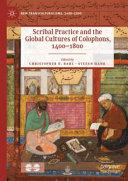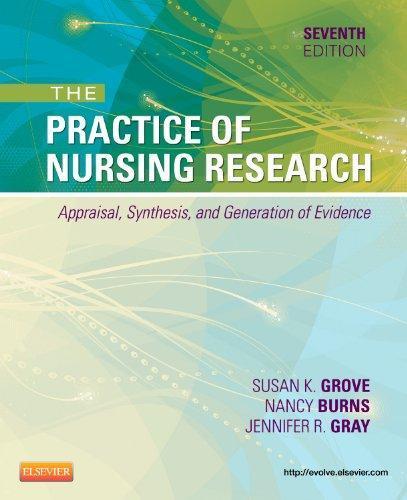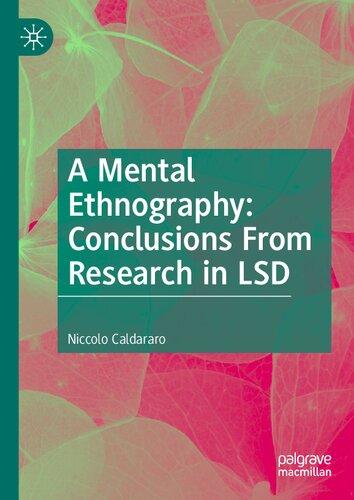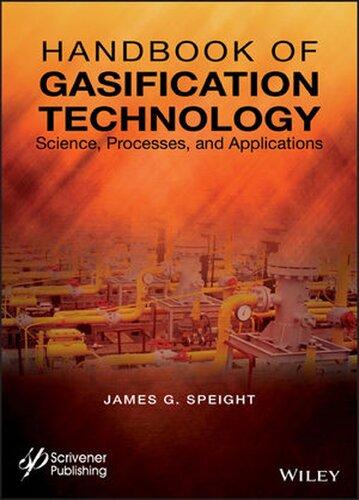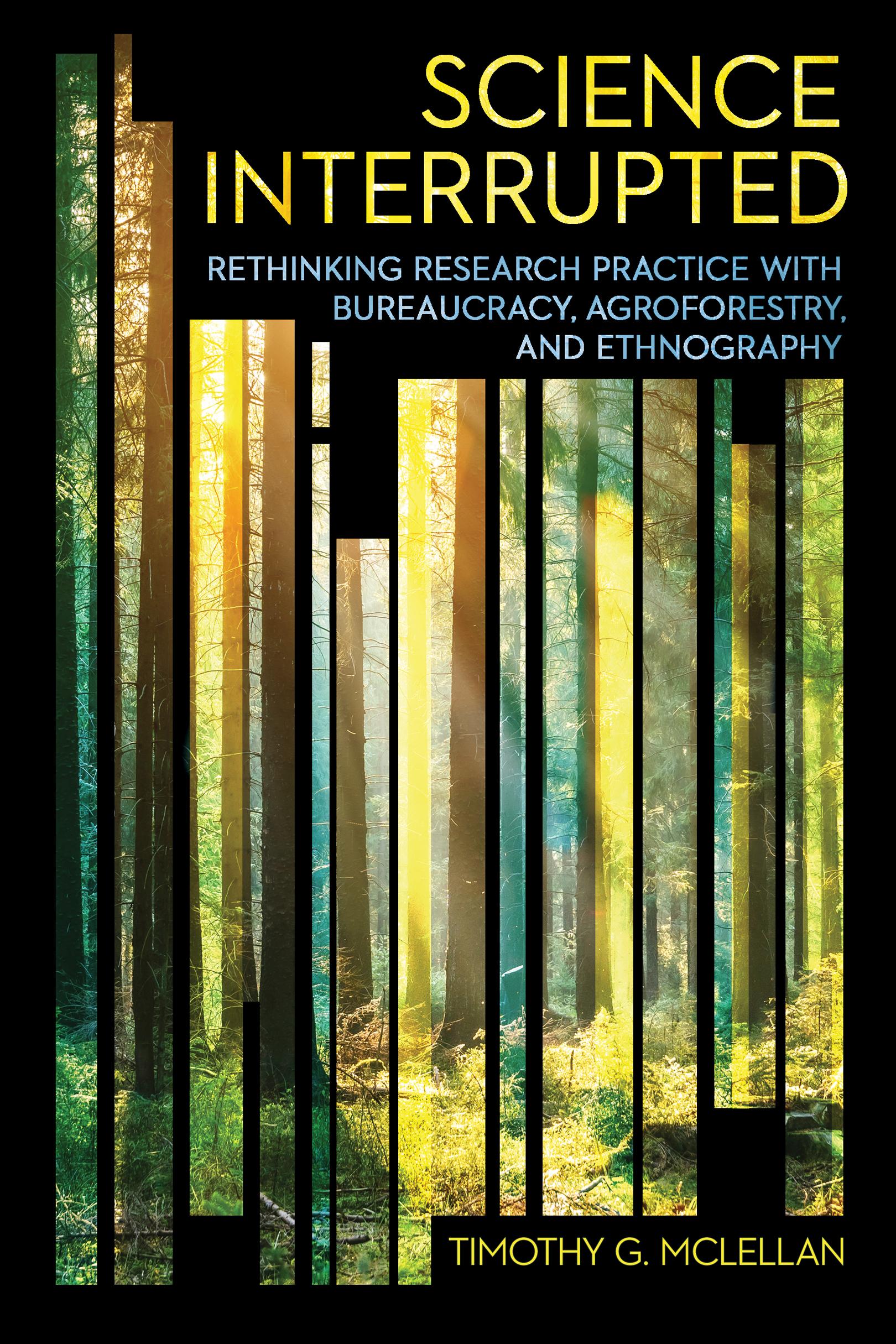SCIENCE INTERRUPTED
Rethinking Research Practice with Bureaucracy, Agroforestry, and Ethnography
Timothy G. McLellan
Contents
Acknowledgments
List of Acronyms
Introduction
1. eory of Change
2. Bureaucracy as Interruption
3. Refusing Trust, Evading Vulnerability
4. Humanizing Bureaucrats
5. Accelerating, Upscaling, Deskilling
6. A Feel for the Environment
7. Generating and Evading Vulnerability
Conclusion
Notes
References
Index
Acknowledgments
I owe enormous personal and intellectual debts to colleagues at my ethnographic site in southwest China. ank you for being such wonderful hosts during my time in China and for the generosity you have continued to show me since.
My thanks to my graduate school classmates Laura Cocora, Perri GerardLittle, Scott Sorrell, and Namgyal Tsepak. I cannot imagine having completed this research without your friendship and support. I also owe a great deal to fellow Cornell anthropology grads Can Dalyan, Nidhi Mahajan, and Mariana Saavedra-Espinosa. ank you for your vital last-minute comments on this manuscript and, more importantly, for a decade of friendship and mentorship. During my time at Cornell, I also bene�ted from the guidance and support of a much wider community of students and faculty. My thanks to Toby Goldbach, Darragh Hare, Emily Levitt, Vincent Ialenti, Hirokazu Miyazaki, Paul Nadasdy, Lucinda Ramberg, Annelise Riles, Steven Sangren, Emiko Stock, Yu Xingzhong, and the many others who taught me so much at Cornell.
During the penultimate year of my PhD (2016–17), I had the privilege of being an unofficial guest in the Department of Social Anthropology at the University of Manchester. Postgraduate seminars and Sandbar gatherings were an invaluable testing ground for early versions of the ideas and analysis I present in this book. My thanks to Ben Eyre, Maia Green, Soumhya Venkatesan, Chika Watanabe, and all the students and faculty who made my time in Manchester so productive.
From Cornell, I joined UC Berkeley as a postdoctoral fellow in the Center for Chinese Studies. Berkeley was a wonderful environment in which to write the �rst dras of this book and provided the opportunity to �esh my ideas out in dialogue with faculty, students, and postdocs across the Bay Area. For conversations about this project, I thank Lisa Brooks, Jennifer
Hsieh, You-tien Hsing, Peiting Li, Adam Liebman, Stanley Lubman, Yan Long, Juliet Lu, Jesse Rodenbiker, Tobias Smith, and Winnie Wong. I am also grateful for feedback from audiences at presentations hosted by UC Berkeley’s Center for Chinese Studies and UC Santa Cruz’s Department of Anthropology as well as to fellow participants in the UC Berkeley History of Science/Science and Technology Studies Writing Group and the Cal science and technology studies retreat.
While I was at Berkeley, the Center for Chinese Studies funded a manuscript workshop for this book. at workshop was vital for clarifying and re�ning this project on so many levels. As importantly, the enormous generosity of the workshop participants reinvigorated my faith and enjoyment in this project. My deepest thanks to Don Brenneis, Todd Sanders, Kristin Sangren, Rachel Stern, Sarah Vaughn, and Li Zhang. It was such a privilege and such fun to spend a day discussing this book with you.
From Berkeley, I joined the staff at Northwestern University’s Institute for Global Affairs. I took a break from writing while at Northwestern, but during my time there, I learned an enormous amount about contemporary universities, what is wrong with them, and the inspirational people who struggle against the odds to make them better places. is book doesn’t scratch the surface of what colleagues at Northwestern taught me, but they have nevertheless shaped the pages that follow in important ways. Special thanks to Diego Arispe-Bazán, Patrick Eccles, Liz Jackson, Julie Petrie, and Ariel Schwartz.
By the time I resumed work on this book, I had joined the Bachelor of Arts in Language and Culture program in the Faculty of Arts at Chulalongkorn University. I am grateful to my colleagues here for helping me navigate bureaucracies every bit as troublesome as the ones I describe in this book and to my students for reminding me of the educational values that are at stake in transforming universities.
At Cornell University Press, I thank Jim Lance and Dominic Boyer for supporting the project, as well as the wider team at the press and at Westchester Publishing Services for their work to create this book. My thanks as well to two anonymous readers whose comments helped me make substantial improvements.
My thanks to those who �nanced this research. Field research for this book was funded by a National Science Foundation Doctoral Dissertation
Improvement Grant, No. 1357194. In addition, I received several grants from Cornell East Asia Program: a Lam Family Travel Grant, a C.V. Starr Fellowship, and a Lee Ting-Hui Fellowship. Further support was provided by a Cornell Society for the Humanities Sustainability in the Humanities Grant and by three international travel grants from Cornell Mario Einaudi Center for International Studies.
Portions of this book’s text were previously published in “Tools for an Efficient Witness: Deskilling Science and Devaluing Labor at an AgroEnvironmental Research Institute,” HAU: Journal of Ethnographic eory 11 (2): 537–50; “Impact, eory of Change, and the Horizons of Scienti�c Practice,” Social Studies of Science 51 (1): 100–120; and “Amateurism and Our Common Concern for Biodiversity,” Made in China 2 (2): 34–37.
Most of all, I am indebted to my family. To my parents and grandparents, without whose love and support I would never have been in the position to embark on this research. And to Nat and Al�e, for supporting me as I persevered with academia and this book despite the many reasons not to and for reminding me of the many things in life that matter so much more.
Acronyms
ANT actor-network theory
CGL Changing Global Landscapes project
CLEAR Civic Laboratory for Environmental Action Research
CSIRO Commonwealth Scienti�c and Industrial Research Organisation
IFF Institute for Farms and Forests
IGO intergovernmental organization
M&E monitoring and evaluation
MELA Monitoring and Evaluation for Learning and Evaluation
MOST Ministry of Science and Technology
NGO nongovernmental organization
NSF National Science Foundation
NSFC Natural Science Foundation of China
PRA participatory rural appraisal
RCT randomized-control trial
REF Research Excellence Framework
RRA rapid rural appraisal
SAPS Songlin Academy of Plant Sciences
STS science and technology studies
TAK Toolkit for Agroecological Knowledge
Introduction
ETHNOGRAPHY WITH SCIENCE, DEVELOPMENT, AND BUREAUCRACY
“I’m really excited about this new project,” Matt told me as we walked along a busy road. “Over the past �ve years, we ’ ve done a lot of talking about agroforestry, but this is a chance to really put things into action. In Myanmar, it could really make a huge difference too. e forests there have been devasted by logging, and for a lot of people, those forests are their livelihoods.” Matt had spent the past �ve years working as a soil ecologist at the Institute for Farms and Forests (IFF) in southwest China. He and his colleagues had produced an abundance of scienti�c research establishing potential social and ecological bene�ts of biologically diverse agroforestry systems. For Matt, however, there was an important step that he and his colleagues needed to start making: one from understanding the potential bene�ts of agroforestry to establishing actual agroforestry systems.
Matt hoped that his new project, Agroforestry for Myanmar, would be an opportunity to make this step. With a multimillion-dollar grant from an international development donor, Matt’s team would establish a series of experimental agroforestry plots in northern Myanmar. ese plots would contain relatively simple agroforestry systems with trees spaced in grids or alleys and agricultural crops planted in between. e plots would begin life as sites for experimental research, but once research was underway, the same plots would also serve as demonstration farms. With training programs at these plots, Matt and his colleagues would try to convince land-users, policymakers, and nongovernmental organizations (NGOs) to adopt and support agroforestry across upland Myanmar.
A year or so later, on a somewhat quieter road near IFF’s leafy suburban campus, Matt’s hope had all but evaporated. “I remember when I used to get to do research,” he told me forlornly. By this point, Agroforestry for Myanmar was mired in endless bureaucratic and institutional headaches: the project donor had retrospectively imposed an in�exible new evaluation framework that was incongruous with IFF colleagues’ expectations for the project, local NGO partners were losing patience aer months waiting for IFF headquarters to approve the transfer of project funds, and Matt was busy trying to persuade a key academic partner that it was neither possible nor necessary for IFF to purchase him a new four-wheel-drive vehicle. Amid this never-ending stream of headaches, the agroforestry systems Matt and his colleagues were so excited to plant, to research, and to promote receded into the background.
e tension between these two moments a moment of hope and anticipation that gives way to one of frustration and dismay is familiar to many of Matt’s colleagues at IFF, as well perhaps to many academic colleagues elsewhere in the world. We are, on the one hand, motivated more than ever to put our research skills to work changing worlds beyond the university while, on the other hand, the institutions that employ and fund us operate in ways that leave ever-diminishing time for us to pursue that aspiration. ese parallel tendencies are connected. Many of the proliferating bureaucratic evaluation regimes the so-called audit cultures that we bemoan in the sciences and humanities are themselves the result of efforts to promote and foster “impactful” research. Indeed, the mantra of maximizing “impact” was at the heart of the new donor monitoring and evaluation framework with which Matt and his colleagues were wrestling. e irony of this contradiction is captured by the commonplace refrain that audit regimes are corrosive of the very things that they are supposed to promote (Kipnis 2008; Power 1997; Shore and Wright 2015; Stein 2018). Certain aspects of the ethnography I present in this book underline this contradiction. As much as examining how bureaucracy and audit undermine the sciences, however, my goal is to explore the positive lessons scienti�c practices might draw from the logics of bureaucracies and from IFF staff’ s frustrations with them. I want to show how thinking with instead of only against bureaucracy might help us confront the task of rebuilding scienti�c practices for a more just and more livable world.
Thinking with Bureaucracy
By thinking with bureaucracy, I mean the application of a classic anthropological method that cras analytic tactics out of ethnographic encounters. In this mode of anthropology, ethnography is not merely something to which we apply theories and concepts; it is also a practice through which we develop them. Some version of this approach to ethnographic theory is shared by anthropologists concerned with all manner of ethnographic objects and intellectual projects. It has given anthropology concepts from “obviation” (Wagner 1986) and “arbitrage” (Miyazaki 2013) to “decolonizing extinction” (Parreñas 2018) and “pluriverse politics” (de la Cadena 2015). In How Forests ink, to take one example, Eduardo Kohn (2013) challenges dominant Euro-American assumptions about what distinguishes humans from other beings by developing an innovative theory of nonhuman thought. For my purposes, Kohn’s theoretical argument is less important than the methods that inspire him to reach it. In this respect, Kohn’s concept of thinking forests emerges fundamentally from encounters with his ethnographic interlocutors the Runa people of Ecuador’s Upper Amazon. According to Kohn (2013, 94), his claims are “not exactly … ethnographic … in the sense that [they are] not circumscribed by an ethnographic context.” But, Kohn continues, his claims “gro[w] out of [his] attention to Runa relations with nonhuman beings as these reveal themselves ethnographically.” I would argue that this makes his theoretical claims exactly ethnographic. Ethnography in the sense I am interested in is not about circumscribing one ’ s claims to a narrow context. It is about building analytic tactics out of encounters with the knowledges, practices, and experiences of our ethnographic interlocutors.
For many anthropologists and in many anthropological sub�elds, the idea of anthropology as a practice of thinking with our ethnographic interlocutors would go without saying. When it comes to certain objects of inquiry, however, anthropologists have been less inclined to adopt this method. is is perhaps especially so with the oen-interconnected themes of audit cultures, bureaucracy, and international development. Rather than thinking ethnographically with bureaucratic and development practices, anthropologists have more frequently taken their theoretical inspiration from Foucault or actor-network theory (ANT) (for example, Escobar 1995;
Ferguson 1994; Hull 2012; Merry 2016; Mosse 2005; Pels 2000; Rottenburg 2009; Shore and Wright 1999; cf. Yarrow and Venkatesan 2012). To be clear, my goal in departing from this approach is not to defend bureaucracy against unfair attack. Indeed, thinking with bureaucracy does not preclude simultaneously thinking against it. Nor, as importantly, is it to question the reality or signi�cance of the violence, precarity, inequality, and injustice that Foucauldian and ANT-inspired approaches have allowed anthropologists to illuminate.1 In emphasizing a more traditional approach to ethnographic theory, I want merely to suggest that for all that is wrong with bureaucracies not least the ones that govern our own professional lives there may nevertheless be creative potential in thinking ethnographically with them.
In this book, I explore this potential in relation to a planning and evaluation tool called eory of Change. In basic terms, eory of Change is a technique for developing a theory of how to bring about desired change in the world. It is oen integrated with metrics for measuring the extent to which that change is or is not being achieved as anticipated. eory of Change originated in development NGOs, but in recent years, it has become prevalent in diverse �elds from philanthropy and international aid to universities and academic funding organizations. Australian academics may, for example, be familiar with it as a core component of the “impact framework” used by the federal research agency the Commonwealth Scienti�c and Industrial Research Organisation (CSIRO) (CSIRO n.d.). It is likewise a required component of certain funding opportunities offered by the US National Science Foundation (NSF) (NSF 2015, 2022).
Depending on who one asks at IFF (as well as which iteration of it you are asking them about), eory of Change is either a bureaucratic headache keeping scientists like Matt from their research or a tool that can empower those same scientists to achieve the real-world impacts they aspire to make. eory of Change can, moreover, materialize in a multiplicity of forms. In some instances, it is a colorful hodgepodge of notecards pinned to a board. In others, it is transposed into a neat spreadsheet replete with measurable targets to be met on a strict schedule. What is remarkable to me about eory of Change, however, is the provocative framework that it provides for re�ecting on three dimensions of scienti�c practice: the horizons that motivate research, the moments at which the future effects of research are anticipated, and how scientists imagine their agency playing out across time.
It is, in anthropological terms, a framework for understanding and reimagining the temporalization of action and agency.2
Taking up eory of Change’s provocation, these dimensions serve as a framework for this book’s analysis and argument. ey are, for instance, the basis of my comparison between an IFF communications consultant named Alistair’s plan to build a brand for agroforestry and a junior scientist named Jiaolong’s more modest call for us to communicate our research to wider publics. In the former case, Alistair conceives a Machiavellian strategy for nurturing the eternal expansion of IFF’s power and in�uence. In the latter, Jiaolong imagines an impact pathway that, like Alistair’s, would entail scientists doing much better at interesting nonacademic audiences in their research. Unlike Alistair, however, her impact pathway anticipates a horizon at which scientists cede control of their work—a moment that anticipates a further horizon where research �ndings might be put to use in ways scientists neither preconceive nor control.
In Alistair’s case, he casts his brand-building strategy as a “eory of Change.” Jiaolong makes no such connection. Since the start of her graduate studies, Jiaolong has been concerned with how scienti�c research might help people generate sustainable incomes from the rubber plantations that she had witnessed spread rapidly across her local landscape. “When I started my PhD,” she told me, “I thought I was doing something that would help rubber farmers like my brother.” is is an aspiration that predates her encounter with eory of Change, and it is one that she would not herself frame in its terms. I nevertheless approach Jiaolong’s proposal as an implicit eory of Change. I do this not to suggest that Jiaolong’s proposal is the same as Alistair’s branding strategy or other explicit versions of eory of Change. Indeed, her proposal is in important respects incompatible with many institutionalized versions of eory of Change. Rather, framing Jiaolong’s as well as many of her colleagues’ ideas and practices as an implicit eory of Change is one way in which I exploit the logic of eory of Change as my own analytic framework—a framework that can, among other things, help us understand latent alternatives to institutionalized imaginations of impact.
inking ethnographically with eory of Change is in this respect distinct from making a case for its embrace within the academy. My argument is that bureaucratic forms like eory of Change might provide productive problematizations for example, “What is the horizon that
motivates research?” not that they necessarily offer ideal solutions. In certain respects, thinking with these problematizations can help us articulate what is wrong with eory of Change as a way of doing science. We can, for instance, follow eory of Change’s lead by comparing evaluation regime–imposed horizons with the horizons that implicitly motivate IFF scientists. is comparison can help illuminate the limitations of certain conventional research practices, but it can also help us question the very peculiar expectations that eory of Change–based evaluation regimes generate. In adopting this ambivalent orientation toward bureaucracy, I take inspiration from feminist and decolonial science and technology studies (STS) scholars who have in a variety of ways sought to repurpose ostensibly objectionable scienti�c concepts and practices to the service of critically analyzing and transforming the sciences (for example, Fanon 1963; Grosz 1999, 2005; Haraway 1991; Harding 1991; Murphy 2021; Roy 2008, 2018; Subramaniam and Willey 2017b).3 inking in terms of bureaucracy-inspired problematizations may at times give us pause to ask whether bureaucracy (or at least some transformed version of it) might have a positive role to play in remaking the sciences. At other times, these problematizations will help us conceptualize what is wrong with the audit cultures that govern contemporary science, academia, and international development. Most importantly, thinking with bureaucracy can help us re�ect on the aspiration that Matt and Jiaolong share with colleagues at IFF and elsewhere: that of doing science in ways that might help transform the deeply troubled worlds we inhabit.
Bureaucracy as Interruption
Many of the bureaucratic and scienti�c practices I describe in this book will resonate with experiences beyond one office in southwest China. Indeed, a key goal of this book is to speak to challenges, frustrations, and aspirations that are relatable across disciplinary and national boundaries. Nevertheless, this book, its concepts, and its argument emerge fundamentally out of ethnographic �eldwork at a speci�c place: the Institute for Farms and Forests’ China office. is is not an ethnography of bureaucracy and eory
of Change in the abstract but one of and with the perspectives of IFF colleagues as they encounter them in their professional lives.
IFF is a global agroforestry research for development organization with its headquarters in East Africa. IFF established an office in Songlin a city in southwest China almost twenty years ago. Originally a country office responsible for activities within China, by the time of my �eldwork (2014–16), it had expanded to take on a regional role with active projects elsewhere in East, Central, Southeast, and South Asia. Broadly speaking, IFF’s mission is to produce scienti�c knowledge that will inform and enhance equitable and sustainable rural development it pursues “research for development.” But the question of what IFF does and why it does it is a large part of what is at stake in the divergent ideas of science and impact that I explore in this book. IFF’s projects at the time of my �eld research included Eco-Friendly Rubber, a project to develop sustainable and environmentally friendly rubber cultivation practices for southwest China and neighboring Southeast Asia. is project operated in tandem with the Lengshan Multi-Stakeholder Platform, an initiative set up in Lengshan Prefecture, southwest China, as part of a broader global project to facilitate multisector collaboration in tropical agriculture. e Qingshan Agroforestry project held similar aspirations to Matt’s Agroforestry for Myanmar project, only in this instance focused on Qingshan, a small township in southwest China. A broader Asian Fungi project involved numerous subprojects from taxonomic macrofungal surveys to social science research on mushroom harvesting.
ese projects were led and implemented by an office of around twenty research staff, ten corporate services staff, and forty or so affiliated graduate students. Approximately half of the staff and students are Chinese, with large contingents from elsewhere in Asia as well as from Africa, Europe, and North America. is staff is diverse in terms of their expertise and training as well as in the aspirations and goals they hold for themselves, for IFF, and for environmental research more broadly. is is evident in, among other things, their diverse responses to new institutional mandates to employ eory of Change as a method for planning and evaluating IFF’s work.
Like many at IFF, my �rst encounter with eory of Change came in the form of an “outcomes thinking” workshop run by a headquarters-based senior scientist named Lesley. I remember sitting through the �rst morning of her workshop wondering whether what Lesley was telling us about
proactively communicating research �ndings (as opposed to simply sticking them in an academic journal or policy brief and leaving it at that) was not already obvious to everyone in the room. “Isn’t what Lesley is saying more or less what IFF already does?” I asked Matt at lunch. “What is she saying that’s new?” “is is really important,” Matt responded. “What she is describing is a long way from what we ’ ve been doing, and we really need to start doing what she is teaching us. ” Part of my misapprehension, I realize in retrospect, was my incorrect assumption of a natural affinity between the applied agroforestry science that many already practiced at IFF and outcomes- or impact-focused science. I did not yet appreciate the difference between a research practice that anticipates the utility or application of new knowledge in the hands of unde�ned future users (IFF colleagues’ existing approach to applied science) and a research practice that plans for knowledge to be deployed to prede�ned ends by prede�ned users (outcomes thinking). For Matt, moreover, even applied science had been relatively peripheral to his work. In this respect, whereas Jiaolong had always imagined a close connection between her research and transformations in agroforestry practices, for Matt such a direct connection was more novel. Having spent much of his previous �ve years at IFF taking signi�cant satisfaction (and institutional reward) from the publication of what he called “fundamental research,” Matt appreciated Lesley’s offering as an opportunity to start realizing the potential of his research to generate real-world change. Bob, a more junior colleague and the only Songlin-based staff member familiar with eory of Change prior to Lesley’s workshop gave a slightly different assessment of what was new in Lesley’s workshop. As we climbed the stairs to join colleagues for a morning coffee break, Bob explained to me that “ everyone at IFF already has an implicit eory of Change. We all already work according to a set of assumptions about how one gets from research to change in the world.” A key value to Lesley’s workshop, Bob continued, was that it forced his colleagues to re�ect more explicitly on those assumptions. eory of Change, Bob suggested, is a re�exive process that can help IFF colleagues rethink and revise how they go about their work. is book’s attempt to think with eory of Change follows through on Bob’s basic idea here that eory of Change can help us make explicit and re�ect on existing imaginations of the processes that connect research to the worlds beyond the academy.
Bob and Matt’s positive attitude toward Lesley’s workshop was not shared by everyone. Ruyue, a postdoc in Matt’s soil biology group, was one of several colleagues who attended only the �rst morning of the two-day event. She later told me, “I’ve heard it all before,” before joking that I would “get used to this sort of workshop soon enough.” What Ruyue had heard before was not eory of Change speci�cally but headquarters scientists �ying in for a couple of days to share ideas that held minimal relevance to IFFChina’s work. A year and several encounters with eory of Change later, Matt had adopted a similar view. When word got around that Lesley was planning a follow-up workshop, Matt joked with colleagues about what �eld research they could reschedule to make sure they were out of the office for the workshop.
ere are important differences in how Matt and Ruyue experience eory of Change and other externally imposed mandates. ese colleagues share, nevertheless, a concept for thinking about such things: for most IFF staff, eory of Change is just one of the many mafan, or “headaches,” that are part and parcel of professional life. A dictionary translation of the Chinese mafan would be a “trouble” or a “nuisance.” In the office ’ s common English parlance, the term is oen le untranslated, operating as a loanword even among colleagues like Matt who speak very little Chinese. When it is translated, mafan usually becomes “headache,” “pain in the backside,” or some more colorful equivalent.4 is is a label IFF colleagues apply in a range of bureaucratic contexts, �attening distinctions between what we might otherwise imagine as quite distinct challenges: draing a eory of Change, applying for a visa, completing donor project reports, procuring research permissions, �ling expense reports, satisfying Chinese anticorruption procedures, and so on.
is notion of headache contains an implicit eory of Change of its own: a particular way of imagining the temporality of bureaucratic and scienti�c action and agency. Rendered as a headache, IFF colleagues experience bureaucratic work (itself a �uid category) as a momentary interruption to meaningful work. Confronted as a headache, the interrupting moment is animated exclusively by the question of how the nuisance in hand can be overcome as quickly and efficiently as possible.5 As IFF colleagues understand it, moreover, the in-the-meantime labor of overcoming a headache is something that will have little or no effect on the
scienti�c work that will resume once the headache is out of the way. Headaches do not restrict or transform scienti�c practice; they merely put it on hold.
One thing that is striking about IFF staff’ s rendering of bureaucracy as a headache is that it suggests a very different kind of analysis to that offered in social scienti�c analyses of academic audit cultures or of monitoring and evaluation (M&E) regimes in international development. A central question in studies of university audit regimes has been “what audits and rankings bring into focus and what they render invisible or unsayable” (Shore and Wright 2015, 422). Similarly, in the �eld of international development, David Mosse (2005) analyzes development projects as a “system of representations,” and Richard Rottenburg (2009) describes development project evaluations as a production of “immutable mobiles” for subsequent recombination into representations that serve the hegemonic interests of Western donors. Such focus entails social scientists drawing insight out of the incongruity between what audit and bureaucracy make visible or legible on the one hand and the alternative representations that ethnographers or their research subjects might make of the situation on the other.6 For IFF staff, by contrast, the paucity or opacity of the representations that bureaucratic procedures produce is of little interest. In the context of university audit cultures, understanding bureaucracy as a means of making academic work visible is suggestive of a mode of critique that highlights the failure of audit to provide an adequate medium of representation (Giri 2000). is in turn can imply that our challenge should be to cra regimes that can make academic performance visible on academics’ own terms (Shore and Wright 2015). But what kind of critique and what kind of imperatives for transformation are implied by an understanding of bureaucracy as a mode of interruption?
In a straightforward sense, the concept of a headache might suggest that what is wrong with bureaucracy is that it interrupts at all. Indeed, the notion of headache indexes an ideal of scienti�c work shorn of nuisance distractions such as donor accountability and institutional regulation. Rather than indulge the fantasy of scienti�c practice free from interruption, however, I consider how central components of scienti�c practices such as peer review, PhD defenses, and participatory workshops are, no less than bureaucracy, forms of interruption. Unlike headaches, however, these are
interruptions in which IFF staff anticipate opportunities for feedback that can positively transform the future direction of a project. Exploring the various ways in which IFF scientists actively seek opportunities for their work to be interrupted by communities within and beyond the sciences, I argue that interruptions are vital to scienti�c practice both as it exists now and in the more collaborative and democratic forms of science that we might wish to build. ese forms of interruption are moments of willful abeyance of agency (Miyazaki 2004), ones that anticipate our interlocutors shaping our research in unpredictable ways. e critique of academic bureaucracies from this perspective would be that the interruptions these bureaucracies generate fail to provide opportunities for generative abeyance. And if the critique of bureaucracy in the academy were to focus on the inadequacy of the interruptions that bureaucracies generate, our challenge might be to imagine not alternative forms of visibility but alternative modes of interruption.
Trust and Vulnerability
At the time of my research, IFF was officially registered with the Chinese state authorities as an international research organization. is is an arrangement common to the numerous international agricultural research organizations operating in China. More unusually, the office is also legally constituted as a research center within a prestigious public research institute named Songlin Academy of Plant Sciences (SAPS). e same office therefore exists both as an international organization and as a domestic public research institute. is dual identity allows some advantages but can also mean double the bureaucracy. As a colleague named Tao put it, having feet in two institutions means “getting screwed from both sides.”
Tao grew up in Songlin before heading overseas to study and work in the �elds of rural development and environmental sustainability. Returning home to take up a senior position within IFF’s corporate services team, Tao was attracted to the organization by its mission to build sustainable socioecological futures. Like many of her colleagues, however, she was frustrated that so much of her time was devoted to bureaucratic headaches that did nothing but get in the way of that work. ough these headaches came from
“both sides,” Tao saw one important difference between Chinese bureaucracy and that of IFF’s global headquarters. Dealing with the latter, she told me, “ere is at least the possibility of �exibility.” When she encountered IFF regulations that imposed an unreasonable or impossible burden on the China office ’ s work, Tao knew she could speak to a colleague at headquarters and try to negotiate an exception. is, she told me over a lunchtime coffee, “could never happen with the Chinese side”: even when following regulations to the letter would make vital scienti�c activities like �eld research and academic conferences impossible, Chinese administrators would force IFF to comply.
Echoing Matthew Hull’s (2012) ethnography of Pakistani bureaucracy, Tao suggested to me that officials demand strict adherence to (or at least the appearance of adherence to) document-mediated procedures in order to diffuse the possibility of personal responsibility for the activities they authorize. Responsibility, she told me, is feared because of the vulnerability it generates: if a bureaucrat helps bend the rules, they risk later rebuke from their own overseers. Labeling this phenomenon a “refusal to trust,” Tao equates refusing trust with evading vulnerability. Conversely, her analysis implies that to trust might mean to embrace the vulnerability that comes with entanglement in the affairs of another. is is a concept of trust that can help us appreciate instances in which Chinese officials seem to trust IFF colleagues in precisely this manner: when they willingly entangle themselves in IFF’s activities and in doing so make themselves vulnerable to the uncertain outcomes collaboration might bring.
As well as drawing on Tao’s notion of trust as vulnerability to appreciate IFF’s collaboration with state officials, I argue for the willful embrace of vulnerability as a model of trust for scienti�c practice. In making this argument, I borrow from the ambivalent conceptions of vulnerability developed in recent feminist scholarship (Butler 2015; Butler, Gambetti, and Sabsay 2016; Parreñas 2018; Puig de la Bellacasa 2017). In this literature, “Vulnerability is not just a condition that limits us but one that can enable us. As potential, vulnerability is a condition of openness, openness to being affected and affecting in turn” (Gilson 2011, 310). is ambivalent perspective does not deny that we must continue to challenge the many institutionalized forms of vulnerability and precarity that professionals in the sciences experience at the hands of audit cultures or, relatedly, because
of culture wars, funding cuts, and labor casualization. It does, however, allow us to differentiate the work of managing our vulnerability from “valuing invulnerability as a context-free unequivocal good” and encourages us to grapple with the “repercussions of closing oneself to certain kinds of relations and situations” (Gilson 2011, 323). It might help us, moreover, to encounter and respond to the destructiveness of bureaucracy and audit cultures while keeping in focus the simultaneous necessity of sustaining and proliferating conditions of openness and relatedness that will be crucial to transforming scienti�c practice.
In a certain respect, this focus on vulnerability is a logical extension of meaningful interruptions as moments in which one cedes agency. When IFF colleagues invite feedback from scienti�c peers or rural communities, such invitations are meaningful only insofar as they embrace the vulnerability of their work to the uncertain responses of their interlocutors. Focusing on moments in which IFF colleagues render their work and their knowledge vulnerable, I demonstrate the vital role that vulnerability can play in scienti�c practice. Tying trust to vulnerability, moreover, suggests a particular orientation to a challenge that animates many in the contemporary academy: that of rebuilding public trust in science and expertise. Equating trust with vulnerability would require us to reject tired “trust us, we ’ re experts” models of science-society relations and would allow us to differentiate building trust from claiming autonomy or epistemic authority. e argument, in short, is that if we want communities beyond the academy to trust us, we may need to ask: How can we make ourselves vulnerable to them?
In thinking about the signi�cance of and possibilities for vulnerability in scienti�c practice, I draw on STS practitioners who have long disrupted the invulnerable authority of Science and pushed for more collaborative and inclusive research practices. ese are scholars who have critiqued detached, aperspectival, and mechanical models of objectivity and who advocate instead for practices that embrace the entanglement of sciences in the diverse human and nonhuman worlds that we both inhabit and shape (Latour 2004a; Haraway 1991; Harding 2015; Liboiron 2021; Roy 2008). is literature informs this book’s critique of value-for-money agendas that are tied to problematic understandings of scienti�c rigor and objectivity. As signi�cantly, the way in which feminist STS has foregrounded and innovated
alternative modes of scienti�c practice guides my ethnographic attention to occasions in which IFF colleagues operate outside and in con�ict with the dominant logics of contemporary agricultural and environmental research for development. In chapter 7, my attention to Jiaolong’s call for scientists and government officials to narrate their personal investments in EcoFriendly Rubber is, for instance, inspired by feminists who celebrate and foreground storytelling and the personal in scienti�c practice (Keller 1985; Haraway 1991; Hubbard 1988; Roy 2018; Prescod-Weinstein 2022; Subramaniam and Willey 2017a). e subsequent rejection of Jiaolong’s proposal is indicative of familiar logics and assumptions about Science that remain hegemonic in institutions like IFF. More important for my purposes, however, is the fact that even within such institutions we �nd colleagues like Jiaolong imagining and practicing sciences in ways that gesture toward more inclusive and collaborative alternatives. Jiaolong’s turn to the personal is, in other words, one example of ways in which IFF scientists are already making research vulnerable despite the institutions they inhabit. One could doubtless �nd more sustained and more systematic examples of science vulnerable to communities beyond the academy in, for example, the Civic Laboratory for Environmental Action Research’s (CLEAR) pollution research or Deboleena Roy’s molecular biology (Liboiron 2021; Roy 2018).7 Nevertheless, starting from Sandra Harding’s (1991, 302) premise that successor sciences are “already being developed” in a multitude of settings, I engage Jiaolong as one of many colleagues who might inspire more vulnerable research.
Collegiality and Participant Observation
During my �eld research, I worked for IFF as a research assistant. is allowed me to participate in several of the projects I describe. In the Agroforestry for Myanmar project, I shared responsibility with another junior member of staff for draing donor reports, including the eory of Change spreadsheet described in chapter 1. In the Qingshan Agroforestry project, I served as a Chinese-language interpreter and workshop facilitator for the two soil scientists leading the project. For the Asian Fungi project, my role was to complement IFF’s ongoing biophysical research by designing
and implementing a household survey on local mushroom-harvesting practices. In the Eco-Friendly Rubber and Lengshan Multi-Stakeholder Platform projects, I participated in planning meetings and attended stakeholder meetings as a representative of IFF. I was a more �eeting participant in various other projects and workshops, oen as a notetaker or as an English-language editor.
On one occasion, an American scientist attached to one of IFF’s sister organizations asked with a good-humored chuckle: “Is working for the organization you are researching not a con�ict of interest?” “Yes,” I responded, “but not because of the money. ” e modest salary IFF paid me while I was conducting �eld research for this book is not any incentive to write a book-length advert for the organization’s virtues or to obscure its many �aws.8 Nevertheless, there are important ways in which my personal and professional interests are, if not con�icted, most certainly entangled with those of my colleagues at IFF. ese colleagues are people with whom I shared not only an office but also dinners, beers, �eld trips, and weekends away. Many IFF staff became and still are friends as well as colleagues. Importantly, I share many IFF colleagues’ aspirations for a world in which science helps us achieve healthier and more equitable rural landscapes. is does not mean that I intend for this book to validate my colleagues’ work (as if they needed or wanted me to do so), but I do hope that it re�ects the empathy and respect that I owe them. “Con�ict of interest” is a bad way to describe debts of this kind, but as is the case for most ethnographers, I neither claim nor desire the detached objectivity with which scienti�c methods are stereotypically associated. Personal and professional entanglement in the worlds that we study is a vital component of anthropological research.9
e fact that I worked as an IFF research assistant throughout my �eldwork is one reason I refer to IFF staff as “colleagues.” For the two years I spent conducting my �eldwork, they were colleagues in the most literal and immediate sense. In a certain respect, this kind of collegiality is a fact of any participant observation research. Most anthropologists’ methods rely on the development of enduring relationships with ethnographic interlocutors. When it comes to ethnographies of scienti�c communities, there may also be a sense of collegiality that precedes �eldwork: we already share membership in transnational academic communities. My use of the term
“colleague” references this second sense of collegiality too. It re�ects the fact that even without having IFF in common, many of its staff are people who I might well encounter at academic conferences or seek to speak to through publications like this book. Of course, there is much that divides anthropology from the natural and social scienti�c disciplines in which IFF research staff are trained, not least the fact that as an anthropologist I enjoy a luxury not afforded to any of my colleagues: that of stepping back from �eldwork/employment at IFF to write this book. But, as I allude to in the chapters that follow, there are many ways in which anthropology is not quite as different from agricultural and environmental sciences as stereotypes of the natural sciences might have us believe.
Something that sits awkwardly with my commitment to academic collegiality is my use of pseudonyms for personal as well as institutional and place names. is anonymity is important in part because I describe bureaucratic workarounds that are not always in the spirit or letter of the operative institutional rules. Notwithstanding the use of pseudonyms, it remains possible that readers familiar with environmental research in China will recognize some of the parties involved in my research. To reduce the recognizability of individual staff members, I am deliberately vague about their ethnic and national identities as well as about certain aspects of their careers. To minimize the risk of revealing speci�c, identi�able instances of the bureaucratic workarounds described in this book, I have furthermore �ctionalized aspects of my ethnographic account, and I have limited my ethnography to examples of relatively commonplace bureaucratic tactics to which administrators routinely turn a blind eye. All of the preceding steps aim to decrease the possibility that anyone in a position of bureaucratic authority would have either the motivation or the ability to decipher any speci�c administrative infractions described in this book. e �ip side to these steps, however, is to make it impossible for me to cite my IFF colleagues as academic colleagues. In chapter 1, for instance, I quote from a blog in which Jiaolong articulates an argument for scientists to share their ideas and �ndings with communities beyond the academy. at blog has been just as important an inspiration for this book as any anthropology or STS text, but I do not provide citations to Jiaolong’s or her colleagues’ publications because doing so would undermine my efforts to anonymize IFF and its staff.
ough I have not ful�lled the usual obligation to cite, I have attempted to follow through on other aspects of academic collegiality. is has included sharing dras of this and other writing with some of the colleagues I worked alongside in China. For a member of the corporate services team at IFF who is less familiar with academic English, I also attempted to summarize aspects of my analysis in Chinese.10 IFF colleagues’ responses to my ethnographic writing have been at times critical but always generous. I bene�ted greatly, for instance, from a colleague named Lesley’s commentary on misapprehensions of eory of Change that I unwittingly shared with other IFF-China staff. is was an observation Lesley made reading a dra of an earlier article, aspects of which are reproduced in chapter 1 (McLellan 2021a).
Another IFF colleague’s response to that same dra has been especially informative in my thinking about this project. Via email, Jacob explained to me that my article “spells out nicely what I have felt for a long time but in a less articulated way about the discrepancy of the science way and the development way. ” In many respects, this was (and I know was intended to be) a complimentary thing to say about my work. At the same time, however, this comment led me to question my aspirations for this ethnographic project my own implicit eory of Change. Jacob’s comment suggested that what my ethnography had achieved was an articulation of bureaucratic frustrations that he already knew too well. As I had described in the dra article he was responding to, Jacob is no fan of the “development way ” epitomized by eory of Change and was (for good reason) exhausted by the obstacles that funders were placing in the way of projects like Agroforestry for Myanmar. Illuminating what is wrong with this development way is important. Indeed, it is something that I hope this book achieves. Nevertheless, Jacob’s email le me with the sense that all I had managed was yet another account of the evils of what we might also call the “audit culture way ” or the “impact way. ” Jacob’s comment reminded me that my goal for this project had been to do more than show that bureaucracy can get in science’s way; it had been to re�ect on scienti�c practice itself.
Pondering Lesley’s and Jacob’s emails in relation to this ethnographic project, I began to see the obligation to challenge or, more precisely, to interrupt one another’s thinking as a key part of scienti�c collegiality. In this respect, Lesley’s feedback had interrupted my thinking about eory of
Change by illuminating a dimension to its logic and implementation that I had previously missed. Just as valuable, Jacob interrupted my thinking by highlighting the limited ambition of my writing. Returning Jacob’s collegiality, I realized, might mean writing this book in a way that might interrupt his thinking in as productive a way as he and his colleagues have interrupted mine. is is the spirit of collegiality in which I have tried to write this book, one in which empathy and generosity are crucial but equally in which I hope to interrupt how colleagues at IFF and elsewhere approach their bureaucratic and scienti�c work.
Chapter Overview
In chapter 1, I introduce three iterations of eory of Change that I encountered at IFF. Drawing on the frustrations of IFF staff coming to terms with eory of Change, I show how institutional demands for “impacts” impose temporalities that fundamentally shape the kind of actions and relationships it is possible to imagine and to practice. In addition to exploring the strictures that eory of Change imposes on scienti�c practice, I set up eory of Change as something for us to think with as a framework that can help us understand scienti�c and bureaucratic practices at IFF as well as re�ect on the wider task of remaking scienti�c practice.
In chapter 2, I describe how IFF staff routinely understand bureaucratic work from procuring government research permissions to submitting grant reports as a “headache.” Whereas advocates of eory of Change promote it as a tool for generating momentum toward impactful research, rendered as a headache bureaucratic practices like eory of Change are reduced to nothing but a meaningless interruption. In addition to elaborating this negative sense of an interruption as a waste of time, I juxtapose bureaucratic headaches with IFF research practices during which interruptions of various kinds are valued, productive, and indispensable parts of the scienti�c process. Drawing attention to the quality of interruptions that bureaucratic and scienti�c practices make to research projects, I shi the problem of audit and academic bureaucracy from one of visibility and representation to a question of the quality of interruptions that bureaucracies generate. I also argue that thinking in terms of interruption will allow us to disentangle the problem of trust in the sciences from the goal of scienti�c autonomy and to reconsider what we mean by the “trust” that we seek as scientists and academics.
Chapter 3 shis attention toward IFF colleagues’ navigation of Chinese state bureaucracies, including documentary workarounds to headacheinducing anticorruption measures, and the creative labor of local staff to secure access to research sites for their foreign colleagues. Taking my lead from Tao’s description of the obstructiveness and in�exibility of Chinese bureaucrats as a “refusal to trust,” I outline a concept of trust that is tied to a
willingness to render oneself vulnerable, and I elaborate how desires to evade vulnerability give rise to bureaucrats’ insistence on rigid adherence to formal documentary procedures.
Having explored IFF colleagues’ critiques of bureaucratic vulnerability evasion in chapter 3, in chapter 4 I focus on instances where IFF staff display sympathy toward the vulnerabilities that state officials encounter. is includes an instance where Jiaolong found a government official opening himself to vulnerabilities that he might otherwise have evaded. Borrowing from recent feminist and anthropological considerations of the productive possibilities of vulnerability (Butler 2015; Butler, Gambetti, and Sabsay 2016; Gilson 2011; Parreñas 2018), I suggest that this official’s openness to vulnerability lays a pathway for collaboration and trust.
In chapter 5, I examine the value-for-money logic that undergirds research for development tools. “Tools” constitute a diverse genre, but they oen share several core characteristics: a drive for quanti�able certainty, the deskilling of data collection and project implementation, and a pretense to scale and speed. ese are characteristics that I contrast against the generative anxiety of a project Qingshang Agroforestry that is at odds with certain of the hegemonic logics that tools exemplify.
Continuing with the theme of research for development tools, chapter 6 explores some of the embodied skills and tacit knowledges that deskilled tools pretend to do away with from the feel for the environment developed by a mycologist with an enviable eye for hidden mushrooms to the tacit knowledge of a survey enumerator who is a master of collecting household survey data in rural China. In doing so, I illuminate the “playful modes of inquiry” (Dumit 2021) that are as crucial to the natural sciences and quantitative social sciences as they are to anthropology but that are suffocated by efforts to provide value for money through rapid and scalable research. As well as highlighting the consequences of value-for-money logics for research staff, I argue that tools exacerbate the routine invisibility of “nonacademic” staff whose intellectual contributions to the sciences are as invaluable as they are underappreciated.
In chapter 7, I further examine aspects of IFF’s work that fall outside the suffocating value-for-money imperatives discussed in the preceding chapters. is includes the Qingshan Agroforestry project’s freedom from the kinds of audit processes that govern most of IFF’s other projects. is is
a project that I introduce in chapter 5 as an example of a “scen[e] that exceed[s] or escape[s] ‘professionalization’ ” (Tsing 2015, 285): as a project that casts aside the pretenses to value for money and to hubristic certainty that characterize dominant models of impactful research. I argue that one effect of this escape was for the project team, anxious about the uncertainty and incompleteness of their knowledge, to make their project plans repeatedly and willfully vulnerable to the objections and interruptions of local farmers. At the same time, however, I suggest that stepping outside our usual professional constraints entailed evading other kinds of vulnerability not least accountability to those who fund our work and to the professional peers who might elsewhere serve as our “community of critics” (Strathern 2006). In this respect, chapter 7 is concerned with the tension between parallel impulses to generate vulnerability to local farming communities and to evade vulnerability to publics and peers beyond Qingshan.
In the conclusion, I place this book’s eory of Change into relation with anxieties that universities and the sciences are under threat from, among other things, anti-expert populism, neoliberalism, and audit cultures. In response to the destructive precarity of the contemporary university, I make the case for building scienti�c practices that cultivate vulnerability and that proliferate opportunities for research to be interrupted by broader publics.
